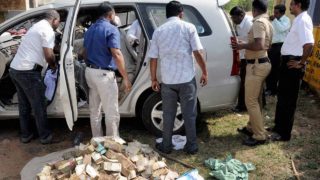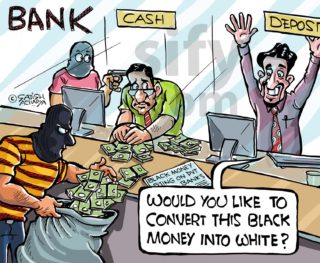On Thursday, 10 November 2016, the Income Tax Department conducted multiple raids across the country. You must have guessed by now that this was done in wake of the recent demonetization of Rs 500 and Rs 1000 notes.
Here’s a quick run-through of all you need to know about the raids.
a) Where did this happen?
The operations were carried out mainly in Delhi and Mumbai, but a few were carried out in other cities like Ludhiana and Chandigarh as well. In Delhi, at least four places were targeted, including popular markets like Karol Bagh and Dariba Kalan.
Similar survey operations by income tax authorities were reportedly also launched in two South Indian cities. It seems like this is just the beginning. We can expect more such raids.
b) Should you be surprised?
No. On Wednesday night, the government had strictly warned that cash over Rs 2.5 lakh deposited during the period of November 10 and December 30, 2016, could attract tax, plus a 200 percent penalty – yep, you read that right – in case there is an income mismatch.
c) What exactly does an income mismatch mean?
In simple terms, an income mismatch occurs when it is found that a person possesses more money than the amount he has disclosed to the government for income tax purposes.
e) What triggered the raids?
The operations were planned after Central Board of Direct Taxes (CBDT) Chairman Sushil Chandra asked all the investigation units in the country to keep a check on any suspicious movement of huge cash and other illegal transactions leading to tax evasion.
The department had reportedly got word that some traders, jewellers, currency exchanges and hawala dealers (informal money brokers) were profiting illegally, taking advantage of the economically ignorant in this chaotic situation by exchanging Rs 500 and Rs 1000 notes at “discounted” prices.
d) Who all are being targeted in these raids?
Those who are making small deposits of the scrapped Rs 500 and Rs 1000 notes are being left alone, and only those with large amounts of undisclosed money will have to face the consequences under tax laws.
e) Did the raids yield any actual results?
Almost over a hundred tax investigators and police officers were called upon to carry out the operations, and they have managed to seize some preliminary documents.
However, there haven’t been any clear incidences of assets being seized. We’ll have to wait for the official reports to come in to find out.
f) Is this good or bad?
Depends on who you ask. For people who have been hoarding black money and paying taxes for a very small percentage of their actual income, this is very bad. But if you are an honest tax-paying citizen (or if you are a professional embezzler and converted your black money to gold early on), you have nothing to worry about.
For those of us who have been waiting to witness the downfall of corruption, it’s time to celebrate.
You’d also like to read:
Why 500 & 1000 Rupee Notes Have Been Declared Illegal? Everything You Need To Know





































